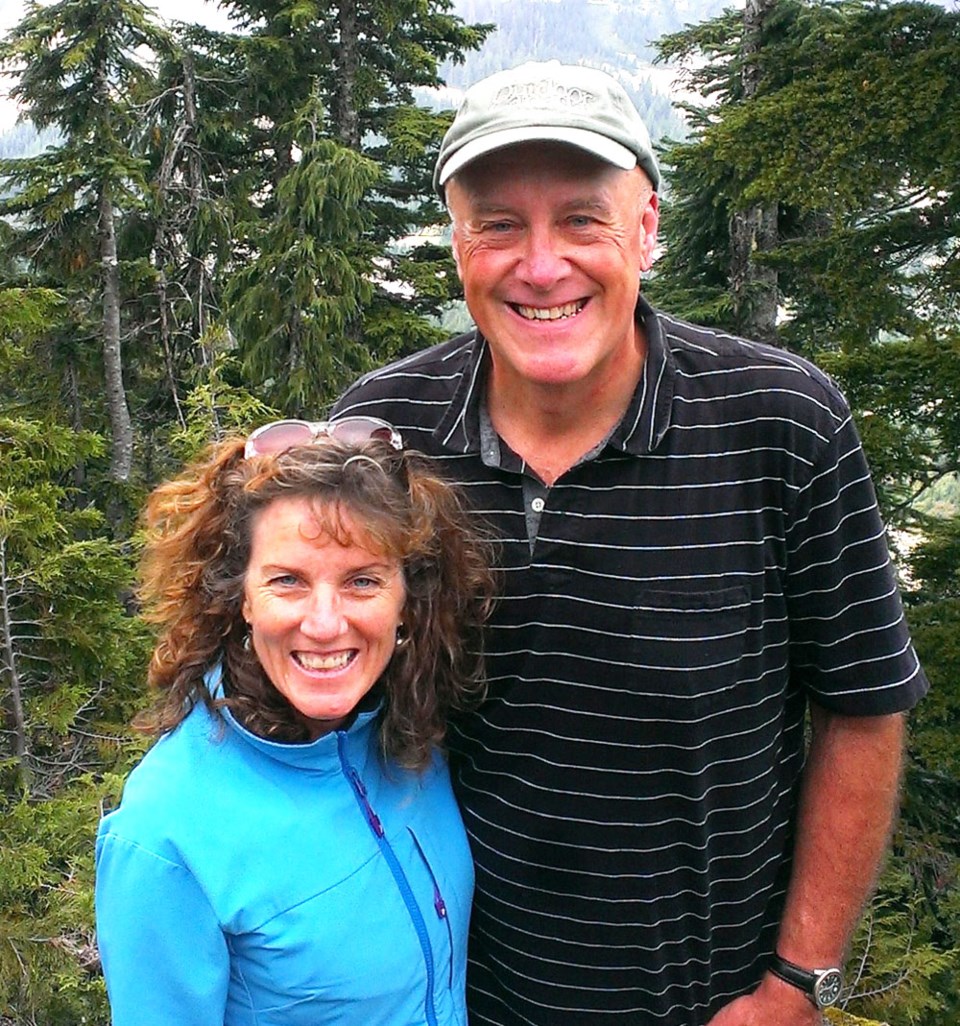Many seniors would prefer to stay in their own homes longer, but aging in the home can be challenging. There’s the risk of cognitive decline, deteriorating physical mobility and isolation from the outside world.
However, the vast majority of seniors live in their homes, so it’s paramount local residents are prepared to stay safe, happy and comfortable in their own space. That’s where New Westminster couple Yvonne Poulin and Gordon Morrison come in. Poulin is a dementia care specialist, and Morrison is a former architectural technologist. They combined their background to create Aging Safely in Your Home, a guide that covers all aspects of aging in the home, including emotional health and well-being, and renovations or spatial changes one may need to make.
“We wrote it together, because we saw it as two distinct aspects in that there’s a health component to aging safely in the home,” said Morrison. “There’s also a building aspect, where there are certain adaptations, renovations that can make aging safely in your home much easier.”
The book includes worksheets and checklists on things like emotional health and preventing falls.
Self-Counsel Press published the book, and it’s available at Chapters Indigo, Black Bond Books and some Pharmasave locations. It’s also available online on Amazon.com or in the public library.
Q&A:
What are some of the most important things seniors need to consider when aging safely in the home?
Gordon: Attitude is everything. The ability and desire to change as you age. I’m 55 right now, and in my mind, I’m still pretty young, but I notice things that are changing within me, and I need to make some personal adaptations, as well as things around my house that can help me. It’s just going to keep snowballing as I age, … and I’ve got to be able to adapt.
Can you give us examples of some of the changes you may typically need to make?
Gordon: On the housing aspect, it becomes much more difficult to stand up from the bathtub or toilet for example. Your dexterity kind of begins a slow decline, so you need to pay attention to things, like throw rugs that are around that you slip on. It’s basically things like that. In bathrooms, you’ve got to be very careful about making sure there are enough grab bars so you’re not trying to balance yourself all the time.
What do seniors need to do to be emotionally healthy and happy in the home?
Yvonne: A lot has been written and even suggested by the World Health Organization that a definition of health is not merely the absence of infirmity and disease. It’s how well a person actually functions in society, and it’s really a holistic model. … How seniors, in particular, do well, it’s the ones who have the strongest connections with a wide variety of social aspects, so not just simply one’s family, but to have family, friends, neighbours, to be socializing with younger people. So socially and emotionally, that’s very important. Emotionally, it’s paying attention to one’s spiritual practices.
We hear stories from seniors’ groups about how some seniors are quite isolated. They don’t have family or friends, or their family is quite far away, maybe their family members or partner passed away. So how do you stay connected when you are in a situation like that?
Yvonne: This book is a really good template. It’s a really good guide on how to stay connected, because once you get to the home, you are even more isolated, and it does become more difficult. One focus for people who are at home and are able to take care of themselves is to nourish those relationships, and foster those relationships. We even talk about the importance of connecting with your neighbours, the importance of volunteering, of getting involved in your own community, seeking out community centres, making yourself do that kind of stuff, even though it may be uncomfortable at first. It’s so important for seniors to have ... that social group, ... it’s a safety net for them.
Your book also includes tips on how to self-monitor your own cognitive state and how to monitor cognitive self-decline. Can you tell me why that’s so important?
Yvonne: For people, as they get older, they are afraid of “losing it.” I think it’s important for people to recognize the difference between normal, age-related cognitive decline. We lose 15 per cent of our memory, judgement or reasoning, that kind of thing, but that’s not everybody.
It’s really important to recognize the difference between that normal age-related cognitive decline and what is abnormal.
What would some examples of abnormal warning signs be?
Yvonne: It is normal, for example, to forget somebody’s name or to forget your keys. It is abnormal to forget someone’s name that is very close to you, in your inner circle, and not be able to remember it within a short period of time.
Do you think it’s better to age in the home if you are a senior?
Yvonne: Absolutely, because most of us want to stay at home. It keeps us in familiar surroundings. It keeps us more comfortable; it keeps us happier. We are more able to navigate through familiar spaces and places, and if we have the support network we need in order to keep us healthy and happy, socializing, getting the food sent to us, we are better off at home.



